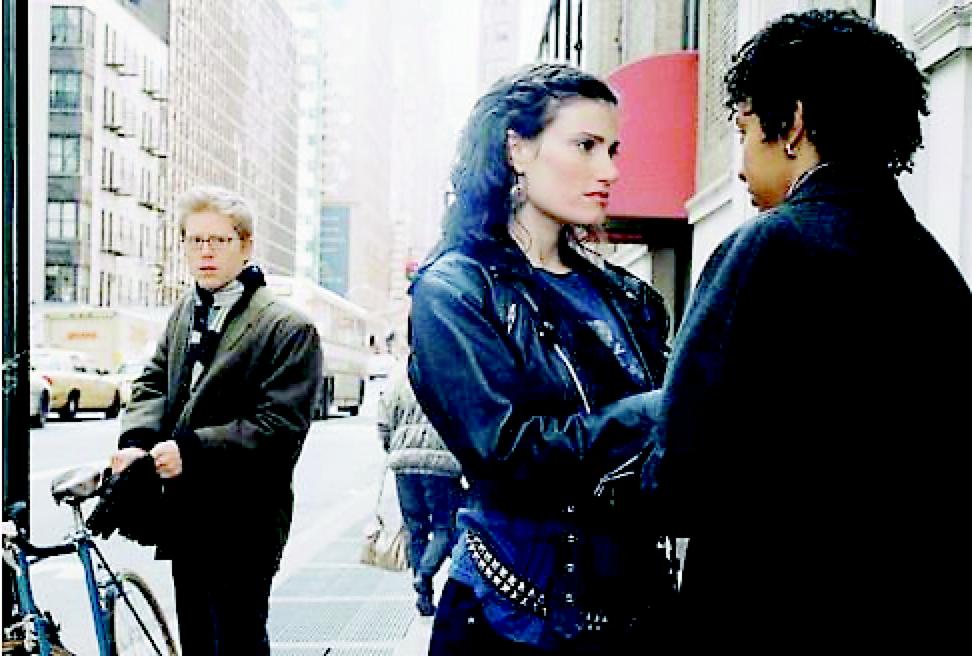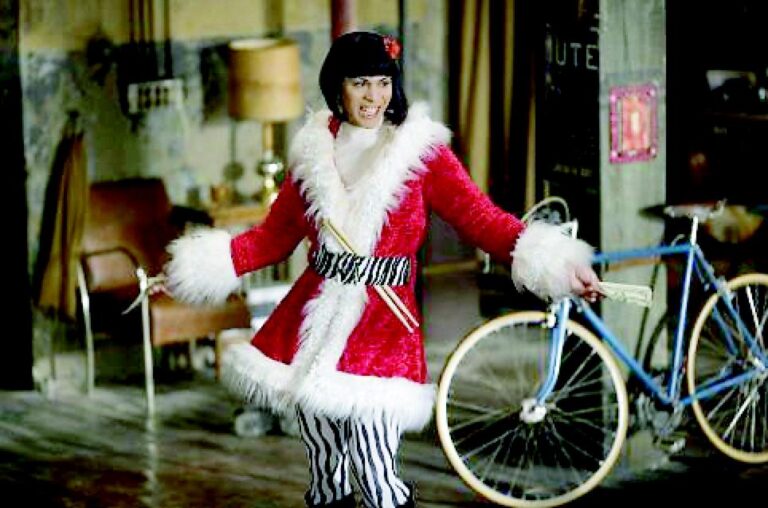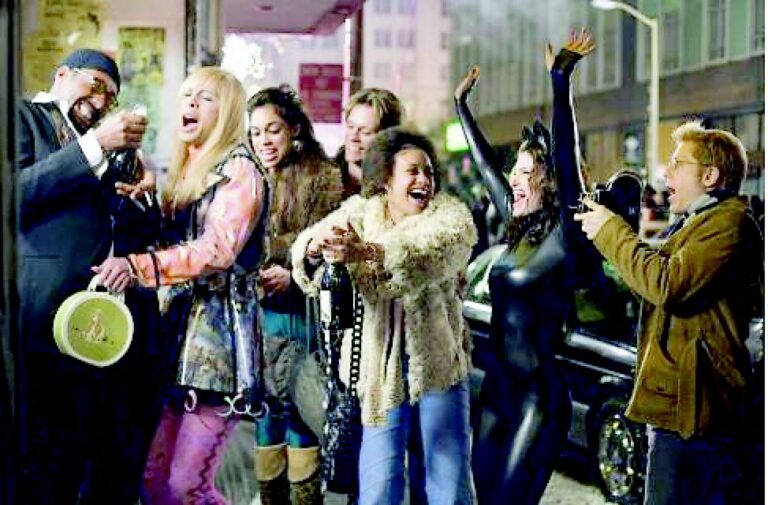Transferring musicals from the stage to the screen has always been a path laden with landmines–even if the filmmakers can come up with a clever conceit for luring us into their world. Rob Marshall's glossy Fosse take on Chicago, for example, neatly suspended our disbelief by setting all the song-and-dance numbers within the mind of its protagonist (Renée Zellweger). Ultimately, though, the thrill of seeing dozens of people singing and dancing live right in front of your eyes will always be more exciting than watching people lip synch through their 18th take of a particular scene on film.
Nonetheless, the success of Chicago has inspired more and more movie studios to scour the streets of midtown Manhattan looking for suitable big screen fodder. This Christmas season alone, we've got big buck adaptations of Rent and The Producers.
Rent is based on the Pulitzer and Tony Award-winning musical by Jonathan Larson. Larson's version, in turn, is basically Puccini's La Bohème rezoned for New York's East Village circa 1989. Puccini, for his part, borrowed the idea from Henry Murger's 1851 novel Bohemians of the Latin Quarter. (Which just goes to show you that Hollywood isn't the only one who can't come up with an original idea.)
Rent comes to the big screen courtesy of director Chris Columbus (whose résumé of Home Alone, Mrs. Doubtfire and Harry Potter and the Sorcerer's Stone doesn't exactly brand him a purveyor of edgy entertainment). What will strike viewers most immediately is that Columbus, to his credit, has chosen to shoot the film on what look like actual New York City streets. (As I understand it, Oakland, Calif., did a little subbing, but the film never feels like it was lensed in a studio filled with flat scenery and painted backdrops.) This gives everything a much grubbier, more realistic look, which works well with the story's gritty, gutter-level subject matter.
The ensemble cast is made up largely of Broadway regulars, many of whom have been playing these characters for years. Credit, again, goes out to the filmmakers for not salting their roster with the likes of Jessica Simpson. (I shudder at the thought.) Among the tiny handful of newcomers is Rosario Dawson (Sin City), who plays Mimi, the waifish dancer-cum-junkie around whom this tragic love story spins.
Mimi lives, along with a cabal of other “artistic” types, in a sprawling tenement building in Alphabet City. Seems that the area has been bought up by a scheming developer who plans to turn it into a high-tech “cyberstudio.” The thrust of the film has the area's colorful denizens coming up with plans to fend off the encroaching gentrification. There's Mark (Anthony Rapp), the geeky, would-be filmmaker. There's Roger (Adam Pascal), the struggling rock star. There's Maureen (Idina Menzel), the annoying performance artist. (Nothing personal, all performance artists are annoying.) There's Tom (Jesse L. Martin), the brainy street professor. There's Angel (Wilson Jermain Heredia), the kindhearted transvestite.
Together, this impromptu “family” loves, lives, sings, dances and struggles through the assorted trials and tribulations of the bohemian underclass.
Having never actually seen the stage version, I have no real idea how hardcore Rentheads will react to the film version. The cast seems pitch-perfect (literally), the songs are as catchy as they ever were and the story is just as melodramatically wrenching. The only major stumbling block is that Mr. Columbus doesn't quite have the street cred to give the film a life of its own. He brings in some expensive cranes, allowing his fancy cameras to swoop, swirl and otherwise perform lovely acrobatic moves, but he remains removed from the material. The film often feels too glossy, too polished. Seedy strip clubs where no one actually gets naked and penniless squatters done up in the most fabulous shabby-chic clothing since Madonna first took the stage give the film a whitewashed, Hollywood atmosphere.
Also, given the age of the material, there are moments in which the story feels less than hip. Written as a late-'80s wake-up call, Rent's taboo-busting mentions of homosexuality, drugs and AIDS are now a bit dated. Not that AIDS isn't still a major issue in today's world, or that it doesn't bear a heavy psychic burden–but, back when Rent made its debut, AIDS was the silent killer. Simply bringing it up as a topic was groundbreaking. The issue has changed a lot in the intervening decade. As a snapshot of that sad time when New York theater (and the entertainment world at large) was losing so many creative people, Rent works just fine. But it's already starting to feel like a timecapsule piece, not unlike Hair–a classic, but clearly a product of its time.
Rent is soulful, well-tuned, perfectly cast and wears its graffiti in all the right places. But–as is the case with so many musicals-turned-movies–I'm guessing it just can't hold a candle to the original stage version.





